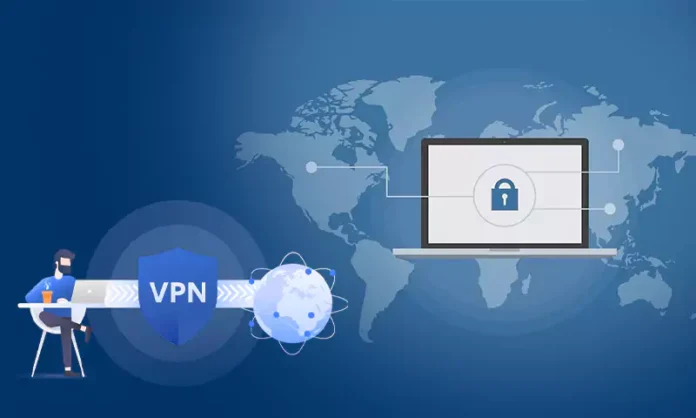The internet has not only brought us closer than ever before, but it has also introduced a new concept of geo-restriction. Geo-restriction refers to limiting access to online content based on the user’s location. This means that some websites and services may not be available in some countries, and accessing them can be difficult or even impossible. However, there are ways to bypass these restrictions and access geo-restricted content. In this article, we will explore different methods of accessing geo-restricted content and the benefits and legal implications of each.
Discussing the Concept of Geo-restriction

Geo-restriction is a common practice used by content providers to limit access to their services based on the user’s location. This is often done to comply with licensing agreements, prevent piracy, or comply with local laws and regulations. For example, streaming services such as Netflix and Hulu are only available in certain countries due to licensing agreements. At the same time, some websites may be blocked in certain countries due to government censorship.
Different Ways to Access Geo-restricted Content

Virtual Private Network (VPN)
A VPN is an effective way to bypass geo-restrictions and access content from any location. A VPN creates a private network that encrypts all the data sent and received from the user’s device. By connecting to a VPN server in a different country, the user’s IP address is masked, and they can access geo-restricted content.
Proxy Server
A proxy server acts as an intermediary between the user and the internet. By connecting to a proxy server located in a different country, for instance, German proxies, the user’s IP address is masked, and they can access geo-restricted content.
Click this link here now to find out how proxy servers can help you access geo-restricted content.
Smart DNS
Smart DNS is a service that allows users to access geo-restricted content by changing the DNS server of their device. Using a DNS server located in a different country, the user’s IP address is masked, and they can access geo-restricted content.
Browser Extensions
Browser extensions are small programs that can be added to a web browser to extend its functionality. Some browser extensions can bypass geo-restrictions and access content from any location.
What are the benefits of each method of accessing geo-restricted content?

VPN:
- Allows users to access content from any location.
- Encrypts all the data sent and received, providing an extra layer of security and privacy.
- It can be used to bypass government censorship and surveillance.
Proxy Server:
- Provides a quick and easy way to bypass geo-restrictions.
- Users can access blocked content in certain countries with efficient proxies like German proxies.
- It can be used to mask the user’s IP address.
Smart DNS:
- It provides a quick and easy way to access geo-restricted content.
- It does not affect internet speed or performance.
Browser Extensions:
- Provides a quick and easy way to bypass geo-restrictions.
- It does not require any additional software or hardware.
Understanding the Ethical and Legal Contexts of Accessing Geo-restricted Content

While accessing geo-restricted content may seem harmless, it is crucial to consider the ethical and legal implications of doing so. In many cases, geo-restrictions are put in place to comply with licensing agreements, prevent piracy, or comply with local laws and regulations. By bypassing these restrictions, users may violate copyright laws, breach licensing agreements, or break local laws. In some cases, the consequences of doing so can be severe, including fines, legal action, or even imprisonment.
It is also essential to consider the impact of bypassing geo-restrictions on the content providers. Content providers invest significant resources in creating and distributing their content, and geo-restrictions may be necessary to ensure they can continue to do so. By accessing geo-restricted content without permission, users may be depriving content providers of revenue, which can impact the quality and availability of the content.
However, when done right and harmlessly, businesses can use geo-restriction bypass tools to keep in touch with trends.
For businesses, staying up-to-date with trends in accessing geo-restricted content is essential. This is particularly important for businesses that rely on online content to reach their target audience or conduct business activities. By understanding the different methods of accessing geo-restricted content, businesses can ensure that their content is accessible to users from any location, expanding their reach and potential customer base.
Moreover, businesses must also consider the ethical and legal implications of accessing geo-restricted content. Violating copyright laws or breaching licensing agreements can have severe consequences for businesses, including legal action and reputational damage. Companies must comply with laws and regulations governing the distribution and content access to avoid legal implications.
Risks and Precautions When Bypassing Geo-Restrictions

When bypassing geo-restrictions to access online content, there are several risks and precautions to consider. One of the main risks is that your online activity may be monitored by your Internet Service Provider or other parties, which could lead to privacy breaches or even legal consequences. Additionally, using a VPN or other method to access geo-restricted content can slow down your internet speed and affect the overall performance of your device.
It’s also important to remember that bypassing geo-restrictions may violate copyright laws, so it’s crucial to only access content that you have legal permission to view. Finally, if you’re traveling abroad and need to use a VPN to access content from your home country, be aware that some countries have strict regulations on VPN usage and you could face legal repercussions for using one.
Conclusion
Accessing geo-restricted content has become an essential issue for individuals and businesses alike. While there are different methods of bypassing geo-restrictions, it is vital to consider their ethical and legal implications. Businesses must stay up-to-date with trends in accessing geo-restricted content to ensure that their content is accessible to users from any location without violating laws and regulations governing content distribution. By doing so, businesses can expand their reach and potential customer base while ensuring they comply with the legal and ethical frameworks governing online content distribution.









